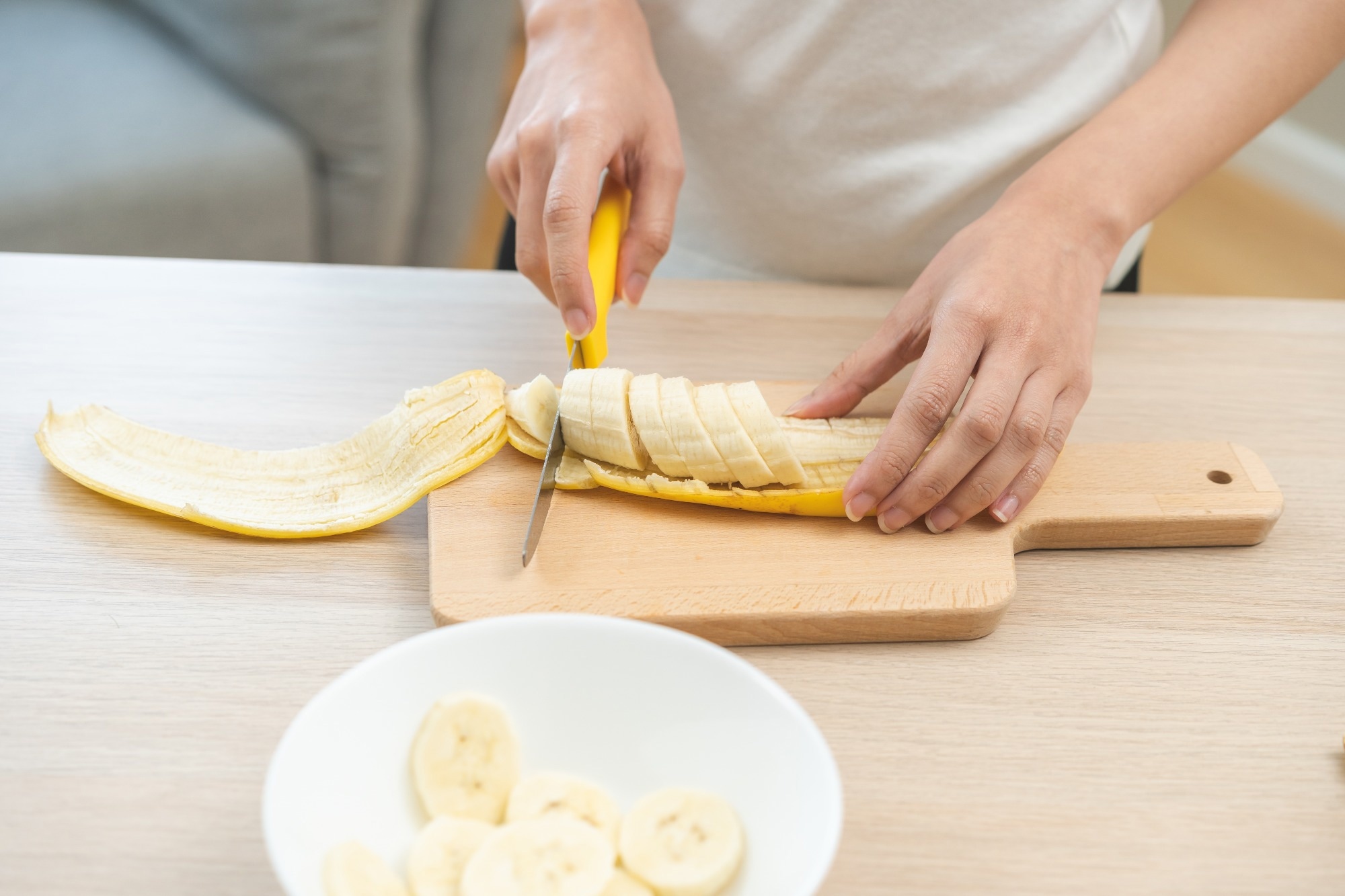Most of us have heard the advice: “Cut back on salt if you have high blood pressure.” But what if the solution isn’t just about eating less sodium, but also about eating more potassium?
 Study: Modulation of blood pressure by dietary potassium and sodium: sex differences and modeling analysis. Image Credit: Kmpzzz/Shutterstock.com
Study: Modulation of blood pressure by dietary potassium and sodium: sex differences and modeling analysis. Image Credit: Kmpzzz/Shutterstock.com
A recent study published in the American Journal of Physiology Renal Physiology reveals that boosting your potassium intake may have a more powerful effect on blood pressure than sodium reduction alone. Using a cutting-edge computational model, researchers uncovered how our bodies regulate sodium, potassium, and fluids, and why men and women may respond differently to these dietary elements.
The body’s balancing act: Sodium, potassium, and pressure
Several body systems, including the kidneys, cardiovascular system, digestive tract, and hormonal networks work together to maintain the right balance of fluids and electrolytes like sodium and potassium. This balance plays a big role in regulating blood pressure.
Hypertension (high blood pressure) is a major risk factor for heart disease and stroke, and its prevalence is rising globally, especially in aging populations and those consuming typical Western diets high in processed, sodium-packed foods and low in fruits and vegetables.
What’s the result? A diet with far too much sodium and not nearly enough potassium - exactly the opposite of what our bodies evolved to handle.
Why potassium matters more than you think
Research has long shown that excess sodium raises blood pressure while potassium helps bring it down. However, this new study goes further, suggesting that the ratio of potassium to sodium in our diet is the most important.
When this ratio is out of whack (as it is in most modern diets), blood pressure goes up, and so does the risk of cardiovascular disease and early death. But increasing potassium intake - even without drastically cutting sodium - can lead to better blood pressure control.
A gender gap in blood pressure
Interestingly, the model revealed some clear sex differences. Men are generally more prone to developing high blood pressure than premenopausal women, yet they also tend to respond more effectively to dietary changes like boosting potassium.
Why the difference? The study points to various physiological factors, such as hormone levels, kidney function, and the body’s handling of electrolytes like sodium and potassium. For instance, women’s kidneys appear to reabsorb less sodium, which helps keep their blood pressure lower under the same dietary conditions.
What the simulation found
Using data from animal studies and translating them into a human model, researchers simulated how the body reacts to high sodium or potassium intake.
Here’s what they found:
- Double the sodium intake? Blood sodium levels only rise slightly - but blood pressure increases, especially in men.
- Add more potassium? Both sodium and potassium are flushed out through urine, helping to stabilize blood pressure - even when sodium intake is high.
- Female advantage: Women, thanks to kidney transporter differences, experience less of a spike in blood pressure in response to excess sodium. Their kidneys send more sodium to the “macula densa,” a sensor that tells the body to stop reabsorbing sodium and to relax blood vessels - lowering blood pressure.
So, what should you eat?
It’s not just about slashing salt - it’s about getting more potassium, too. That means adding more potassium-rich foods like:
- Bananas
- Broccoli
- Spinach
- Sweet potatoes
- Avocados
- Beans and lentils
These foods not only help counterbalance sodium but also support overall heart health.
Final takeaway: Balance is everything
This new research underscores a critical point: it's the balance of sodium and potassium that matters most. And with men and women responding differently to dietary changes, personalized nutrition could be the future of blood pressure management.
As Professor Anita Layton of the University of Waterloo put it, “Our research suggests that adding more potassium-rich foods to your diet, such as bananas or broccoli, might have a greater positive impact on your blood pressure than just cutting sodium.”
Future research will dive into how medications interact with these biological systems - but for now, it’s safe to say that your next trip to the grocery store might be more effective than a trip to the pharmacy.
Journal reference:
-
Stadt, M., and Layton, A. T. (2025). Modulation of blood pressure by dietary potassium and sodium: sex differences and modeling analysis. American Journal of Physiology and Renal Physiology. doi: https://doi.org/10.1152/ajprenal.00222.2024.